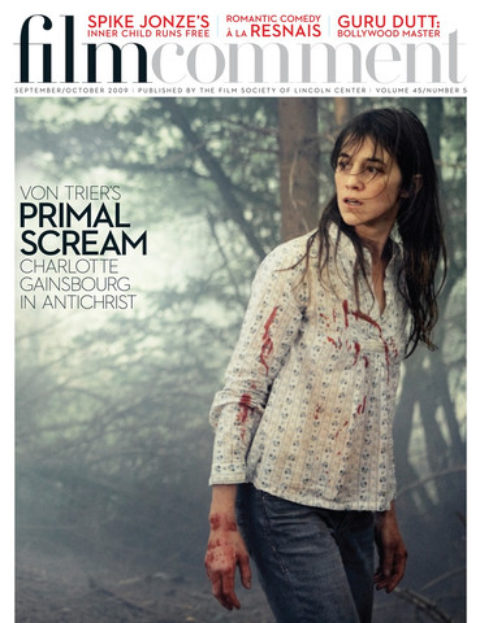
I am wary of documentary makers who announce that they are setting out to “discover” the truth about their subject—and then invite us along for the trip. The suggestion of openness usually augurs just the opposite. And so when Israeli filmmaker Yoav Shamir begins his new documentary by saying that, as an Israeli Jew, he’s never experienced anti-Semitism and that he intends to “learn more about the subject,” I was braced for the worst. But Defamation was a surprise. Shamir does seem to be following his nose—and it leads him away from his original subject and into murkier territory.
A casual hybrid of documentary styles—part personal journey, part political essay, part classic vérité—Defamation gets off to a notably lighthearted start. Accompanied by a pastiche of music and jaunty graphics, Shamir jets around Israel, the U.S., and Eastern Europe interviewing his ninety-something grandmother, African-American residents of Crown Heights, rabbis, and controversial academics. Though the film is filled with exuberant talkers, its most memorable moments are provided by a vérité thread that weaves through the dialectic.
Shamir tags along with a group of Israeli teenagers on a government-sponsored trip to the death camps of Poland—a rite of passage for 30,000 Israeli kids every year. Giddy and exuberant on the plane, the kids hide in their hotel rooms once in Poland—too scared to venture out. As they tour the death camps, the camera gently tracks their stunned faces. In a climactic scene the kids gather, draped in the Israeli flag, in the gas chambers of Auschwitz to read the names of the dead. One girl, chillingly merging past and present, cries “What did I do?” In its focus on the molding of these young minds Defamation can be seen as a prequel to Shamir’s 2003 documentary, Checkpoint, which was about Israeli soldiers manning border crossings. These kids will soon be in the army, bringing with them lessons learned in Poland.

Early in the film, Shamir finds his way to the New York offices of the Anti-Defamation League and the welcoming arms of its president, Abe Foxman, who offers Shamir coffee and seemingly total access. (A quick Google of Shamir could have told Foxman this wasn’t the best idea.) Shamir repays him with cool mockery. Foxman emerges as a true monomaniac, a Holocaust survivor (as a child) who sees anti-Semitism everywhere. His foil in the film, Norman Finkelstein, a son of survivors, and author of The Holocaust Industry sees accusations of anti-Semitism as cynical and self-serving. He greets a mention of Foxman with a Nazi salute. The film sets up Foxman and Finkelstein as twin prophets—outsized, perhaps crazed, figures, battling over the souls of young Israelis. Foxman is winning.
The disparate elements of the film come together in these scenes, and as the film snapped into focus, I began to wonder where Shamir was heading. Is anti-Semitism a fantasy—or is it on the rise? Far from taking a position, Shamir seems oddly uninterested. The film pays only cursory attention to the actual prevalence of anti-Semitism—making no attempt to address the Islamic world, for instance. (Foxman’s review is already in: in a flourish of alliteration the ADL website dismisses the film as “Shamir’s perverse, personal, political perspective.”)
But, though the film is scattershot and flip at times, it is also heartfelt. Shamir isn’t tracking anti-Semitism but rather the idea of anti-Semitism, the fear of anti-Semitism. He barely ventures outside the Jewish community, because this fear is a strictly internal problem and a source of self-inflicted harm. In the end the film is Shamir’s plea to Jews to let go of an identity built on fear and become, in the words of the death-camp tour guide, “a normal people.” But the final image is the sun setting over the barbed wire.








